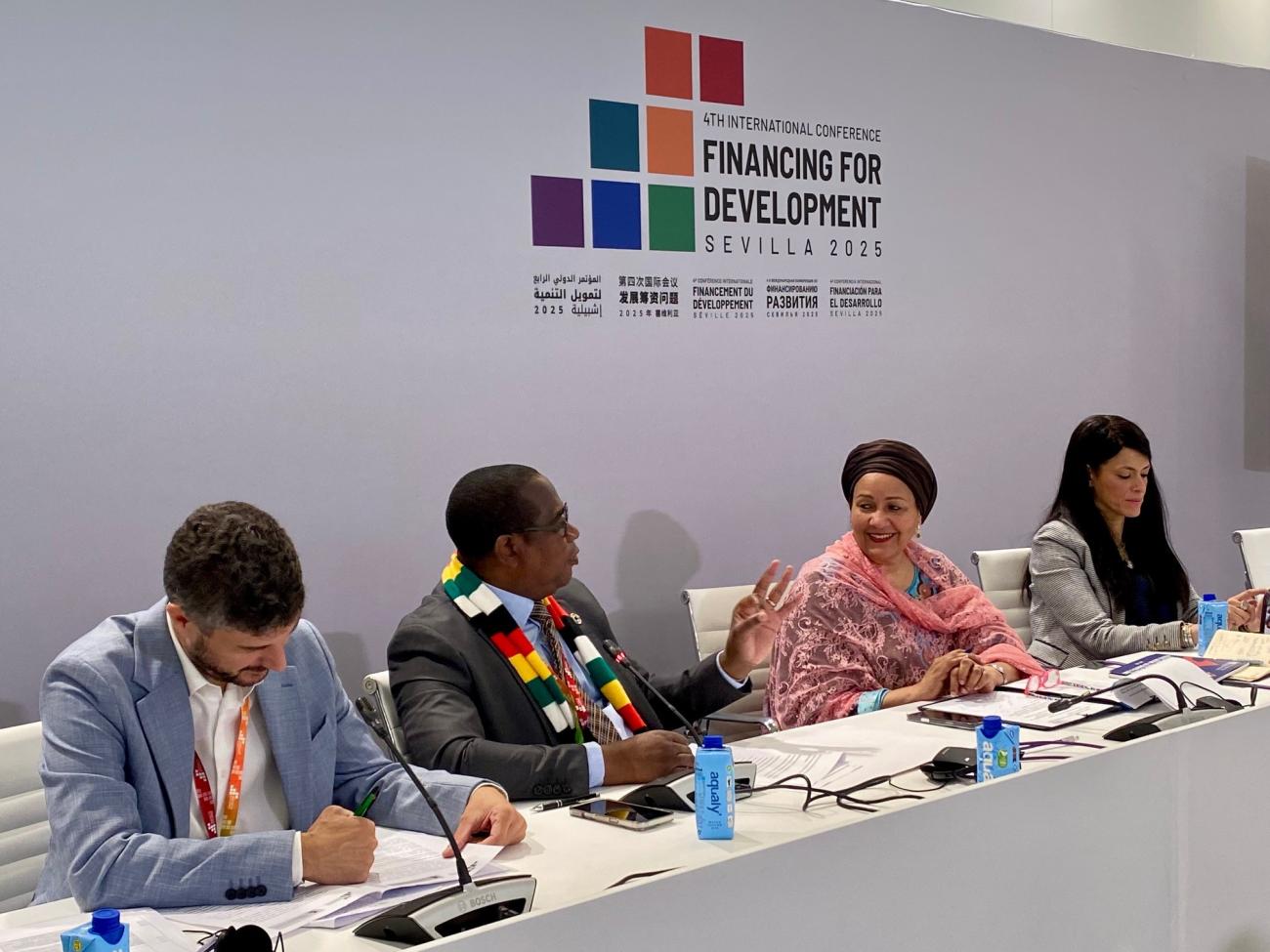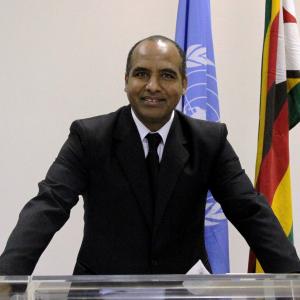Today on the backdrop of the ongoing 4th global Financing for Development Conference, the UN Joint SDG Fund co-convened a high-level event focused on innovative financial strategies to expedite progress toward the Sustainable Development Goals (SDGs). A significant highlight was Zimbabwe’s Finance Minister, Honourable Professor Mthuli Ncube, introducing the Zimbabwe Renewable Energy Fund (ZimREF). This bold initiative underscores Zimbabwe’s dedication to sustainable development by aiming to transform energy access with cutting-edge financing and partnerships.
Zimbabwe faces a crucial challenge: an energy deficit that hampers economic growth and the provision of essential services, particularly in rural areas. The country’s response, ZimREF, promises to mobilize over $100 million in blended finance. This initiative, rooted in the collaboration between the Zimbabwean government, the United Nations under the UN Joints SDGs fund with catalytic fund of US$ 10 million, and the private sector led by Old Mutual Group, is designed to harness renewable energy, fostering economic growth while aligning with Zimbabwe’s climate goals.
The National Zimbabwe Renewable Energy is not merely a financing mechanism, but a strategic instrument intended to catalyze the attainment of the SDGs. Anchored by the Old Mutual Investment Group Zimbabwe, the fund blends equity, debt, and guarantees to support a diverse array of renewable projects — from solar parks to e-mobility solutions. The fund’s innovative structure is enhanced by government incentives, such as prescribed asset status to attract local investments, regulatory reforms, and tax benefits, all of which create an attractive environment for both domestic and international investors.
The initial deployment of the fund’s resources includes substantial projects like the Guruve Solar Park and the Mater Dei Hospital Solar Initiative, along with community-based electrification efforts. These projects underscore the transformative power of ZimREF, particularly benefiting women, youth, and rural communities by improving access to energy, health, and educational services. This approach not only accelerates sustainable development but also positions Zimbabwe as a leader in renewable energy within the Global South.
Honourable Professor Ncube emphasized the need for additional investment to meet the ambitious $100 million target. He urged international development partners to engage with ZimREF, highlighting Zimbabwe’s structured project pipeline, experienced fund management, and robust governance frameworks. The call for investment extends beyond Zimbabwe, proposing ZimREF as a replicable model for other developing nations.
The high-level event, which took place on the side of the Fourth International Conference on Financing for Development (FfD4), underscored a global financing gap for the SDGs, now exceeding $4 trillion annually.
In this context, the UN Joint SDG Fund plays a crucial role by fostering partnerships and channeling resources effectively. By aligning financial flows with national priorities, like Zimbabwe’s Nationally Determined Contributions (NDCs), the fund supports scalable, impactful transitions across sectors such as energy, food systems, and digital transformation.
The conference fostered dynamic dialogue around innovative financing mechanisms and highlighted successful examples of SDG-oriented investments. Participants, including prominent figures from international development banks and philanthropic organizations, echoed the urgency of collaborative approaches to financing sustainable development.
The Zimbabwe Renewable Energy Fund represents a step towards sustainable energy integration, proving that with strategic investment, regulatory support, and international collaboration, countries can propel themselves towards achieving the SDGs.
By setting a new standard for innovative finance in the Global South, Zimbabwe not only addresses its energy challenges but also provides a blueprint for other nations striving for sustainable development amidst complex global dynamics.
As discussions continue under Sevilla Platform for Action initiatives and beyond, the hope remains that these initiatives will inspire broader engagement and investment, translating ambitions into substantial achievements in the global south and across the world.









